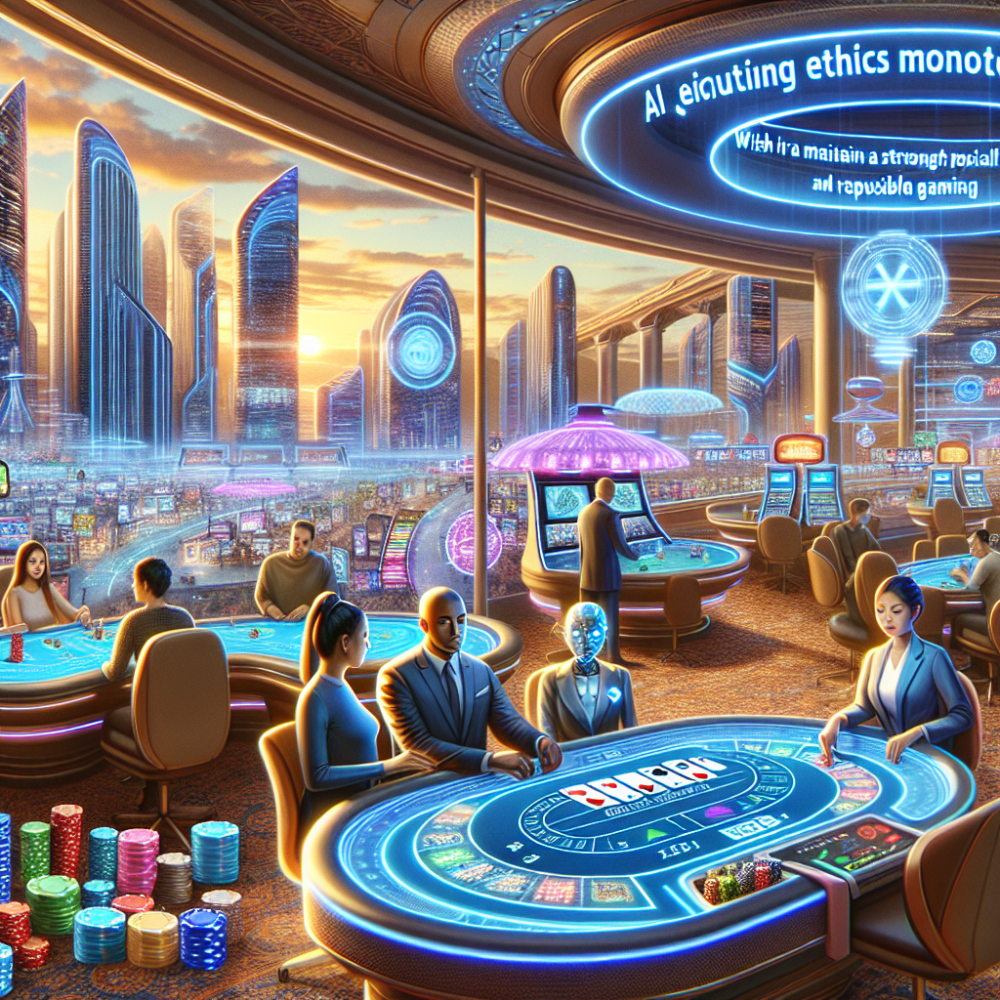In the dynamic world of casinos, the delicate balance between profitability and customer satisfaction is crucial. Traditional models have always leaned heavily on the concept of the 'house edge'—the built-in mathematical advantage that ensures the casino profits in the long term. However, modern casinos are exploring innovative approaches to not only maintain this edge but also enhance customer engagement and experience. In this blog post, we'll delve into these strategies that are reshaping the landscape of casino entertainment and profitability.
1. Technology Integration and Gaming Experience
The infusion of technology into casino games is one of the most significant shifts in recent years. Digital platforms now allow for more immersive gaming experiences that attract a younger, tech-savvy demographic. Virtual reality (VR) and augmented reality (AR) are at the forefront, offering players the thrill of a live casino experience from the comfort of their homes. This technology not only draws in new customers but also opens up avenues for data collection. Casinos can track player behavior and preferences, leading to personalized gaming experiences and targeted marketing strategies.
2. Skill-Based Gaming
Traditionally, casino games like slots are based purely on chance. However, the introduction of skill-based elements into slot machines and other casino games is a groundbreaking trend. These games appeal to those who enjoy video games and those who believe they can influence the outcome of a game through their skills. This shift not only makes the games more engaging but also somewhat reduces the traditional house edge, creating a win-win situation for both players and casinos.
3. Dynamic Betting Options
Flexibility in betting is another innovative approach enhancing customer engagement. Casinos are now offering dynamic betting where the odds and potential payouts change based on real-time game dynamics and player choices. This approach adds a layer of strategy to games, appealing to more analytical players who enjoy sports betting and poker.
4. Enhancing Loyalty Programs
Loyalty programs are not new in the casino industry, but revamping them to offer more tailored rewards can significantly boost customer retention and satisfaction. Modern loyalty programs are leveraging big data to offer personalized rewards, VIP experiences, and promotions that cater directly to the individual's preferences and spending habits. This personal touch not only enhances the customer experience but also encourages frequent visits and longer play sessions, thereby increasing overall profitability.
5. Community Building Events
Casinos are increasingly hosting events that go beyond traditional gambling. These can range from esports tournaments to concerts and other entertainment shows, which create a community atmosphere and attract a diverse crowd. Such events utilize the casino's space during off-peak hours and help in building a broader customer base, which may not typically visit a casino just for gambling.
6. Ethical Gambling Practices
In an era where ethical business practices are more important than ever, casinos are investing in responsible gambling initiatives. These include setting betting limits, providing resources for addiction help, and proactive player education on the risks of gambling. By fostering a safer gambling environment, casinos not only enhance their corporate responsibility credentials but also improve customer trust and long-term engagement.
Conclusion
The casino industry is at a pivotal point where the integration of technology, ethical practices, and customer-focused innovations are driving growth and sustainability. By revamping the traditional house edge to prioritize customer engagement and satisfaction, casinos are not just betting on profitability but also on a more inclusive and responsible gaming environment. These innovative approaches are essential in keeping the industry vibrant, competitive, and appealing to a new generation of players.




